Q4.What might be in your living space?
In a world where there are regular food shortages, we have fixed home locations and we value failure.
By Tucker Cholvin
I’ll start my response with the aspect of regular food shortages. This has predictable consequences, some of which feel more familiar with all of the panic buying that went on at the start of the pandemic. Staples go first, and if food shortages become a regular occurrence then people are going to keep the things that keep forever in their homes: beans, pasta, pulses like lentils, whole grains, rice. I think we would start to see more jars of them on kitchen counters, but if the shortages got really bad, maybe people would have huge bins in their kitchens, stacked—one for rice, one for lentils, one for farro, etc.
I also think that people would eventually begin planning against the needs of regular food shortages, and living spaces would feature larger pantries and additional freezers to store both canned goods and frozen foods in larger quantities. For people who live in larger houses, I imagine that people would start to add or expand cellars and vegetable gardens for similar uses. But folks in smaller spaces could also have their own gardens through the use of hydroponics or grow lights, and community gardens could become more widespread.
I also think that in a world with regular food shortages, there would be more things in our living spaces both to kill our appetites and to distract us. So people might lean harder into a morning cup of coffee, for example, instead of having breakfast. I also think that people would invest more in TVs—larger, higher quality ones, as well as immersive VR systems that fully transport someone away from reality. If you can’t eat, you are definitely going to want to find something else to do that makes you forget that fact.
I also find the idea of having fixed living locations very interesting. If I lived in my old apartment and couldn’t have moved, for example, I would have bought much nicer furniture. I don’t think I would have ever settled for the stuff I used to get off Craigslist, and I would have invested a lot more in décor a lot faster. That’s one change that I think would become more widespread. I also suspect that living with roommates would become less common since those arrangements are sort of temporary by nature.
I am trying to decide if people would have more or less clutter in their homes, and I think it’s more. You never have to move again, after all. I definitely would have gotten around to buying a bunch of kitchen stuff I put off getting. And that’s one more thing: I think people might generally buy higher-quality implements, furniture (as discussed) and other bits and bobs if they knew they had to invest in a place for the long haul.
The last piece, that we value failure in this society, I think would produce more subtle effects. I think that to facilitate failure, you have to have room to try. Living spaces might have more room for creative arts: studies, craft rooms, studios. (If people aren’t living with roommates, then it would be easier to have a spare bedroom.) I also think this would produce more originality in décor. And yes, I think that people would become bigger hobbyists—making their own bread, beer, art, poetry. Not moving around would facilitate this, too—you could really invest in whatever accoutrements you wanted to support your hobby. And in many ways, I think this has been reflected in the pandemic. (Combine valuing failure with food shortages, and I think you also have people trying new recipes and innovating in cuisine more often).
One final note: I think regular food shortages will be something we have to get used to later this century. So the time to design for it is probably now. Thanks for the opportunity to think about these topics as always.
More alternative spaces
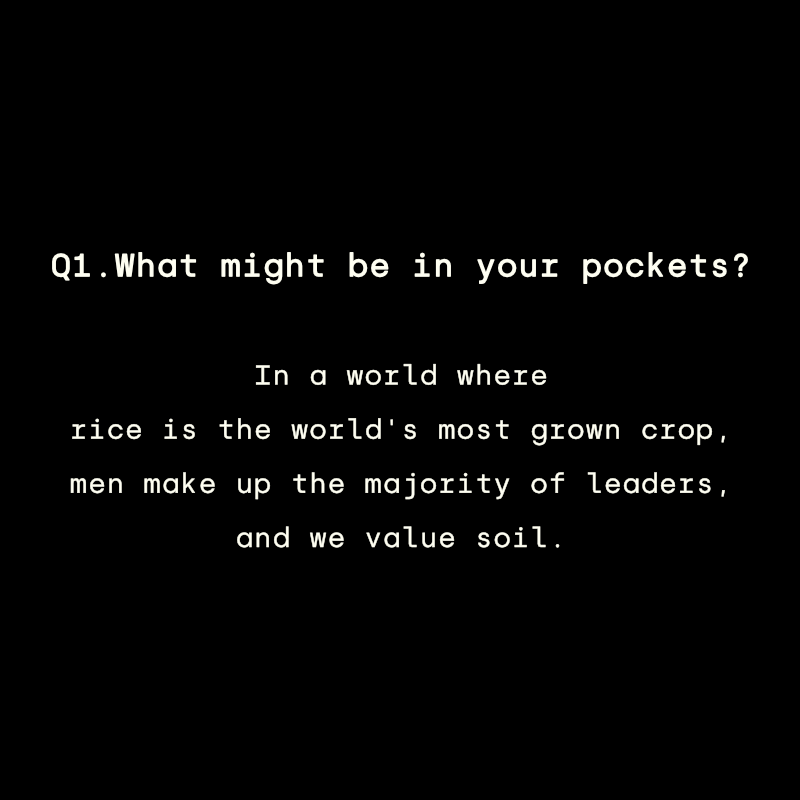
Question 1 - TuckerProject type
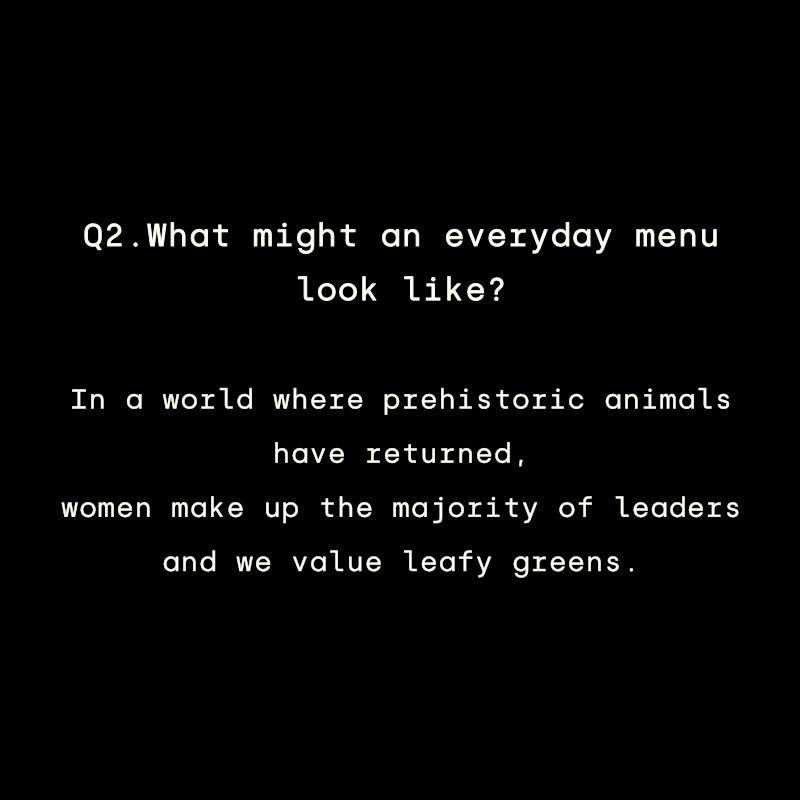
Question 2 - TuckerProject type
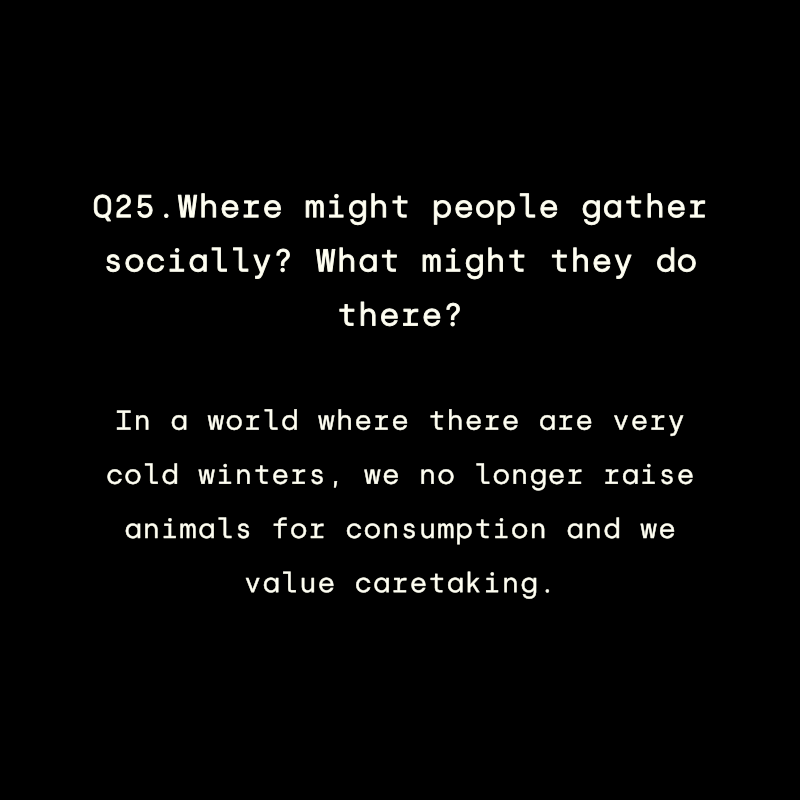
Question 25 - AnonProject type
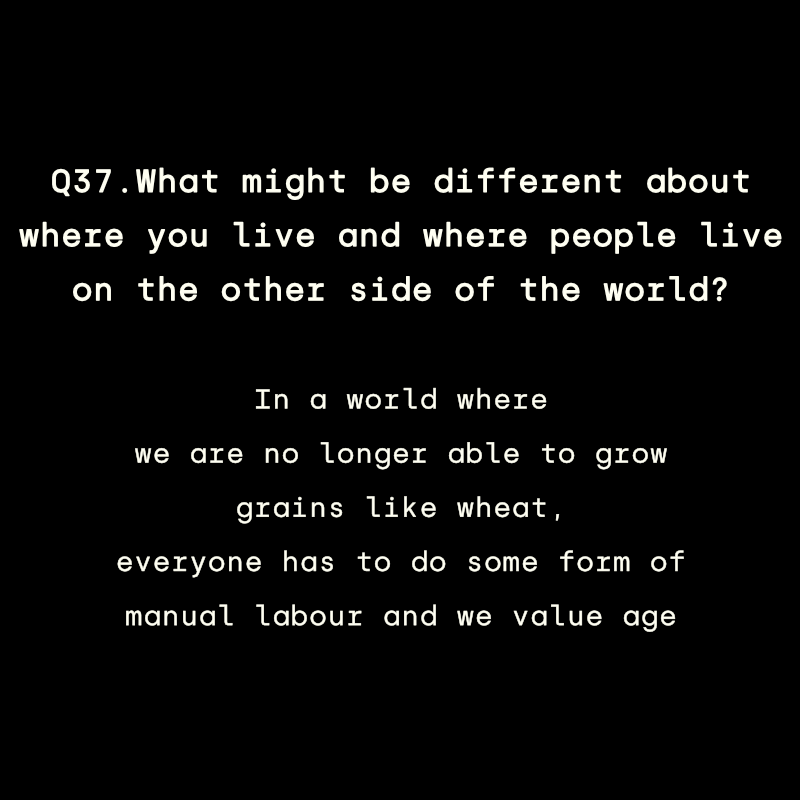
Question 37 - AnonProject type
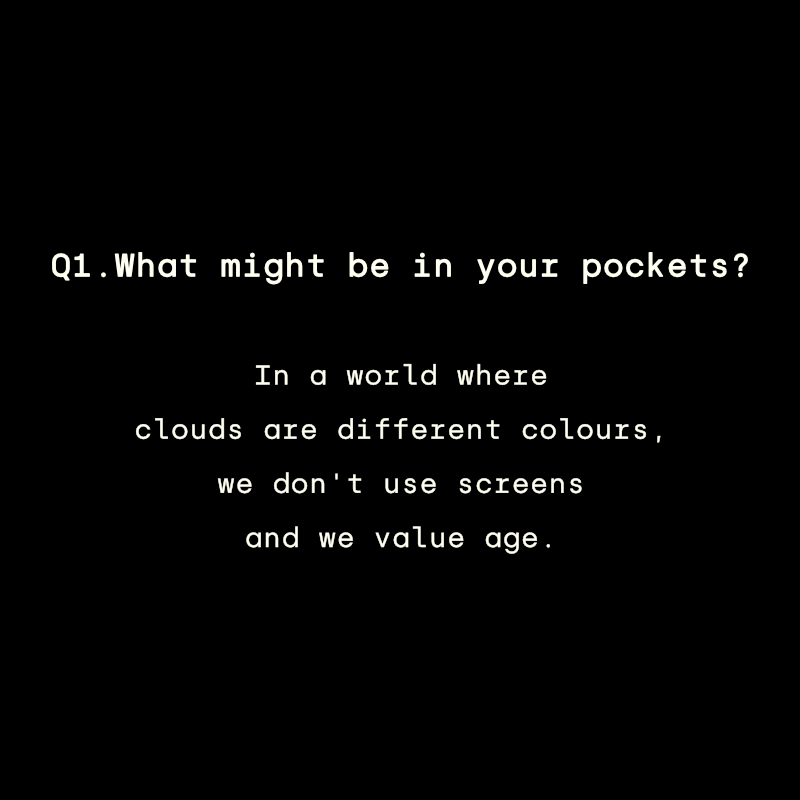
Question 1 - NatalieProject type
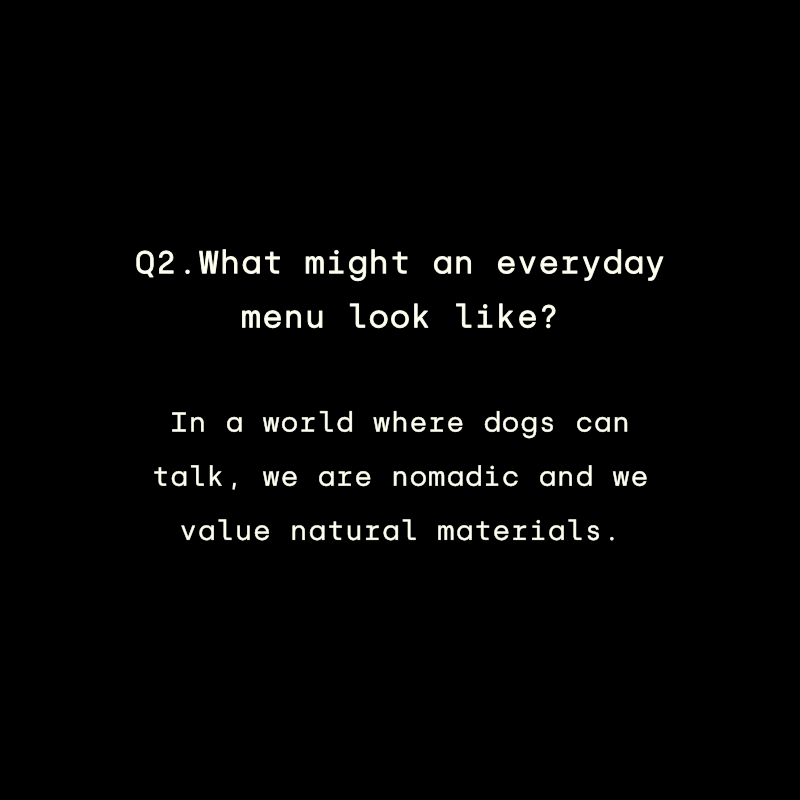
Question 2 - NatalieProject type
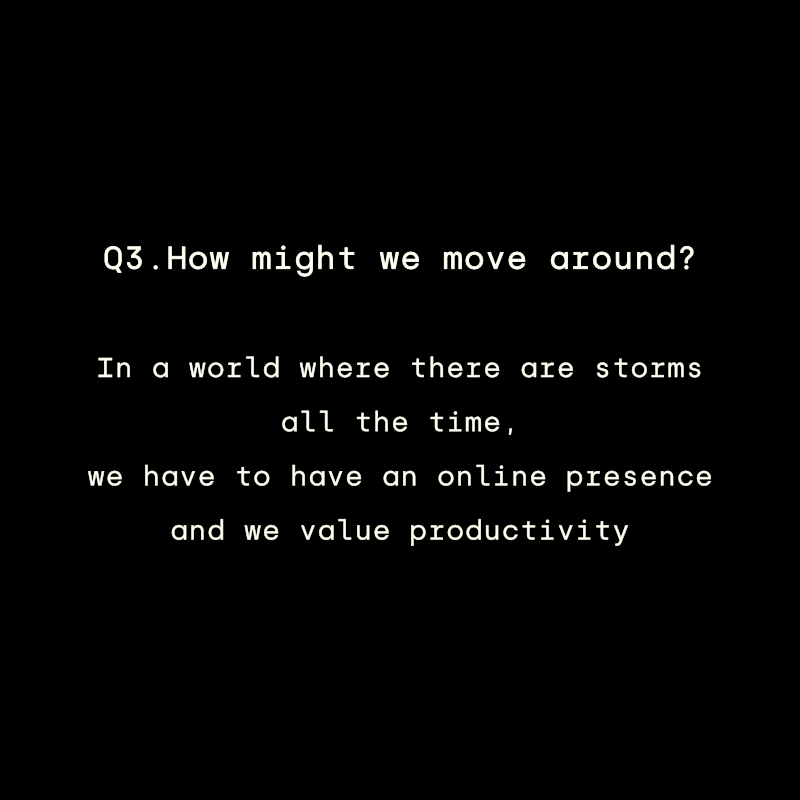
Question 3 - NatalieProject type
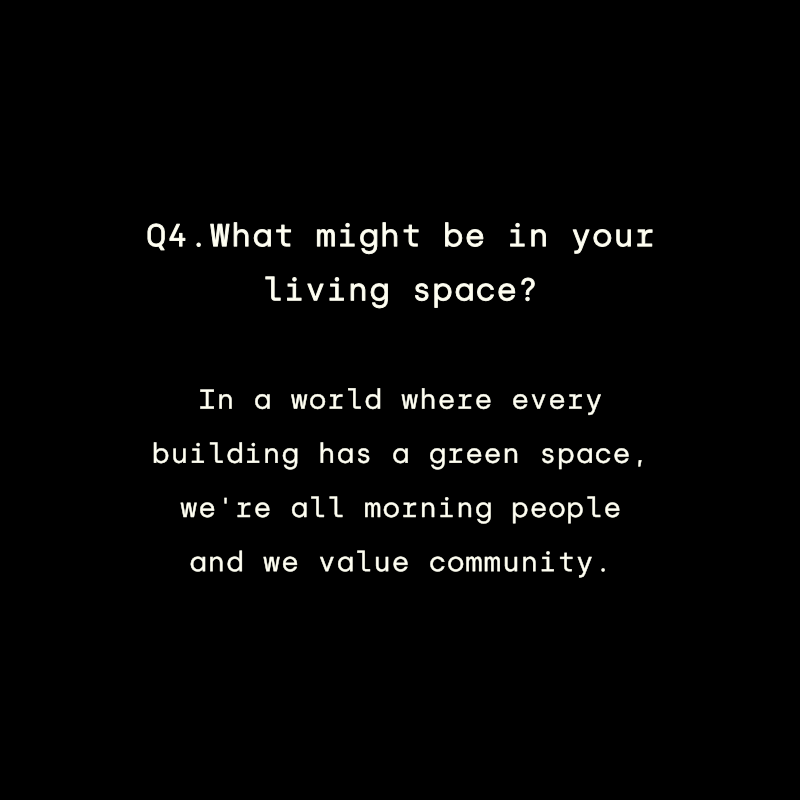
Question 4 - NatalieProject type
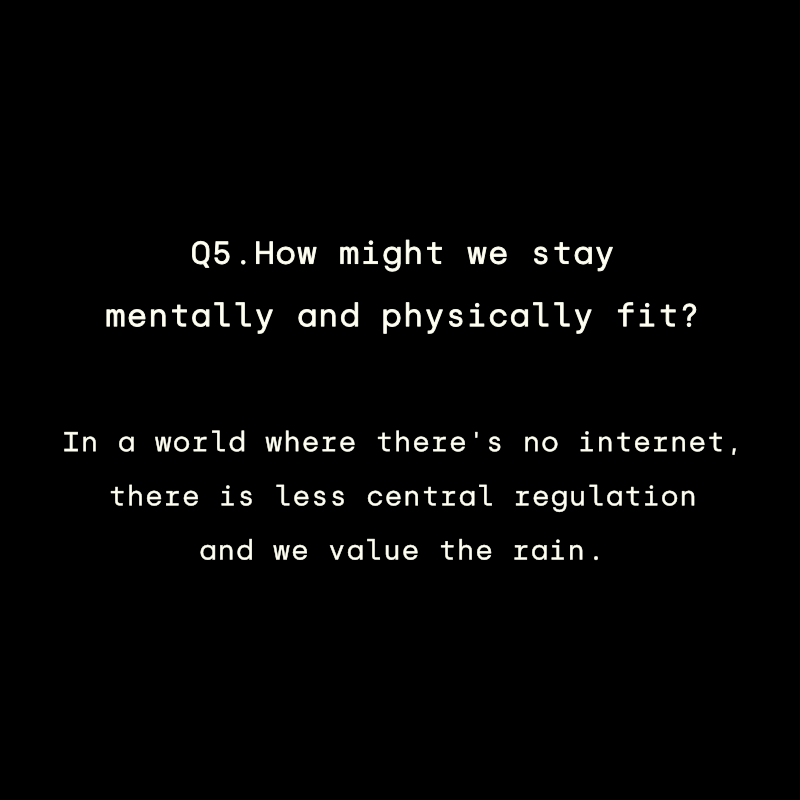
Question 5 - NatalieProject type
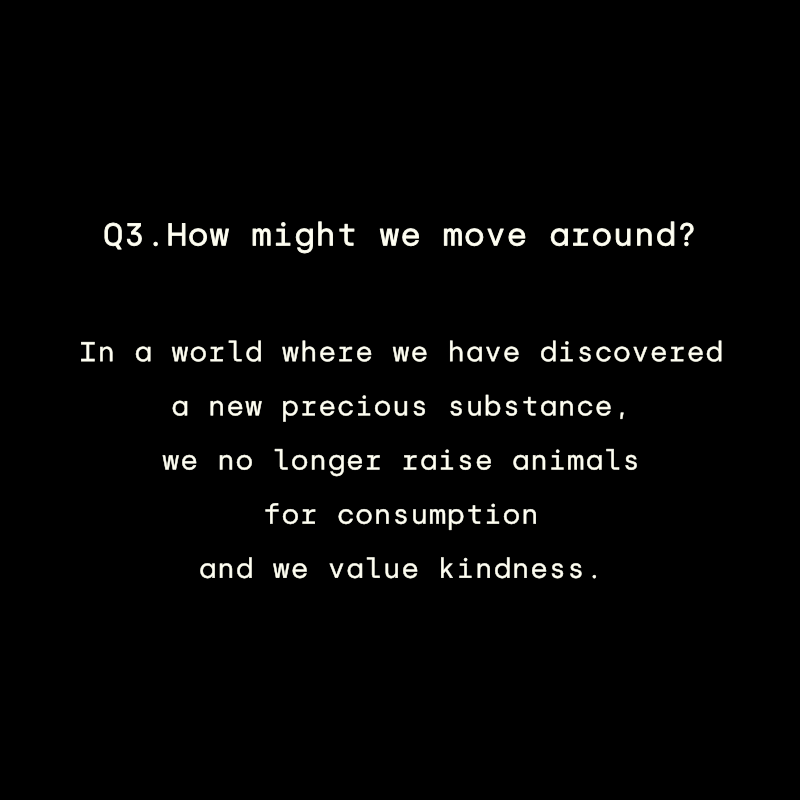
Question 3 - TuckerProject type
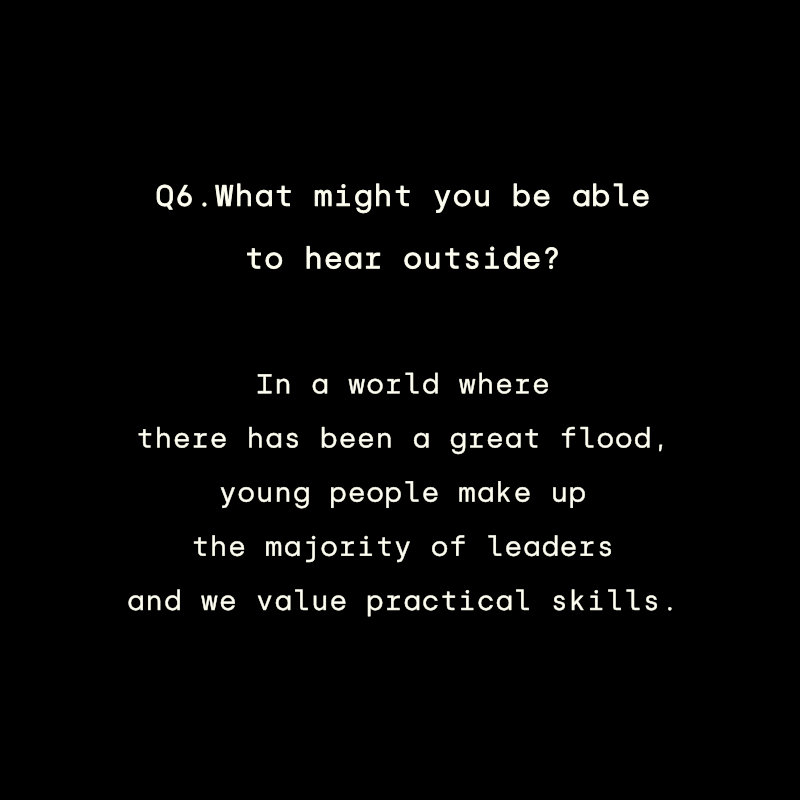
Question 6 - NatalieProject type
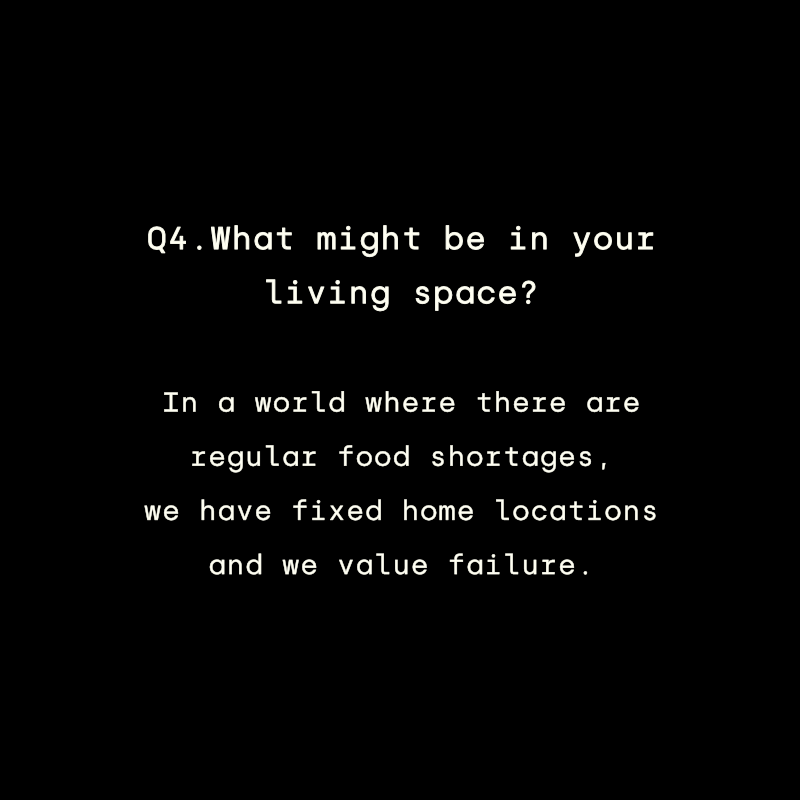
Question 4 - TuckerProject type
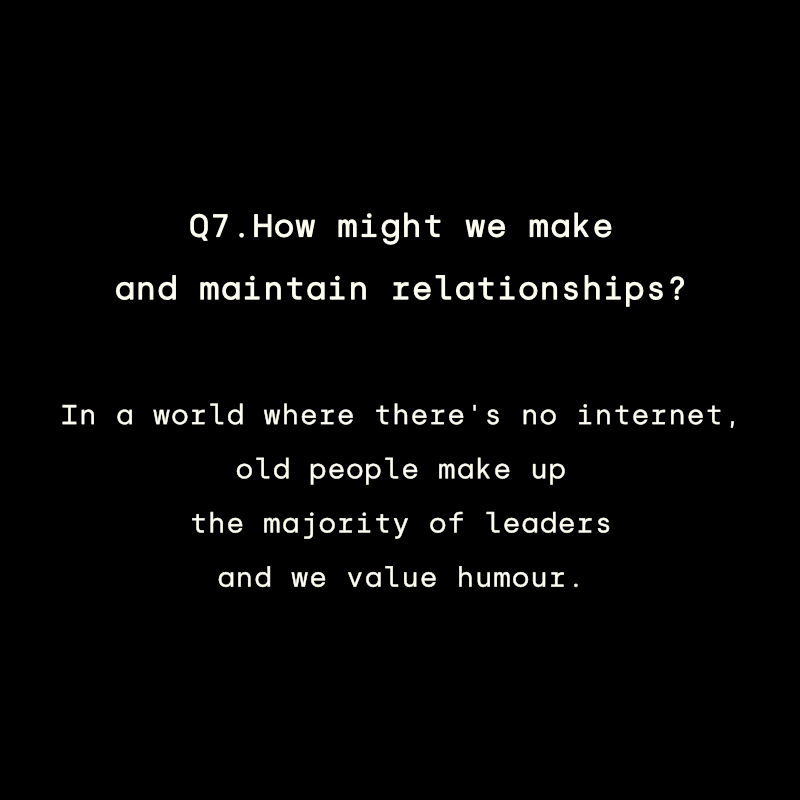
Question 7 - NatalieProject type
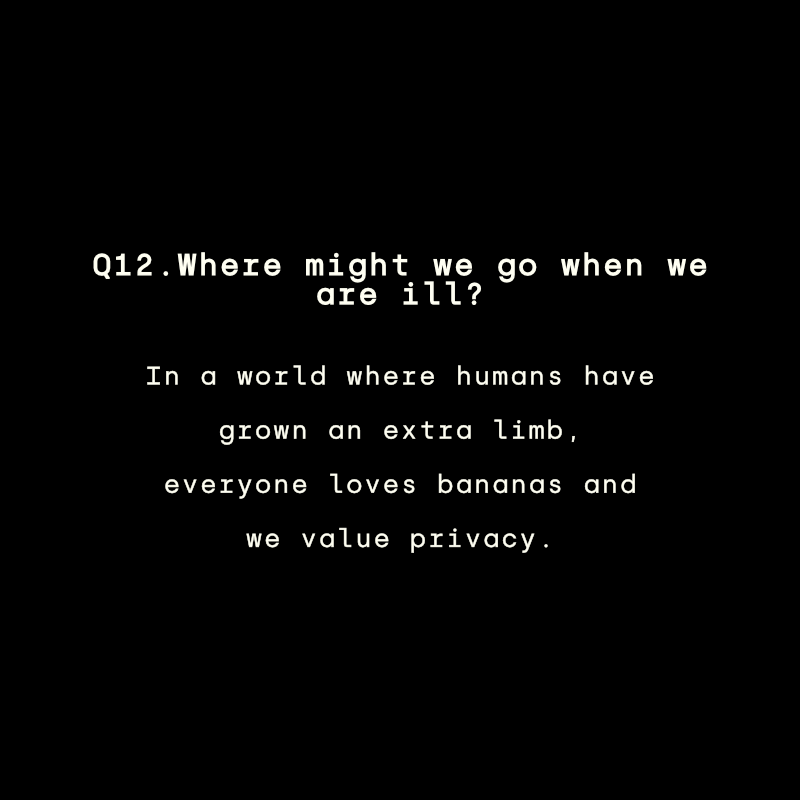
Question 12 - TuckerProject type
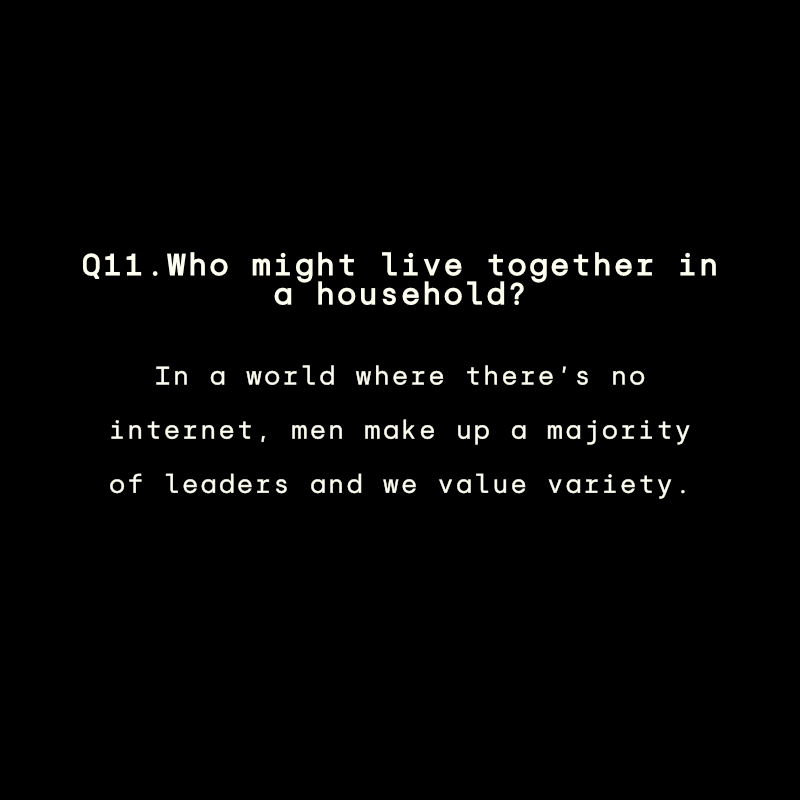
Question 11 - TuckerProject type
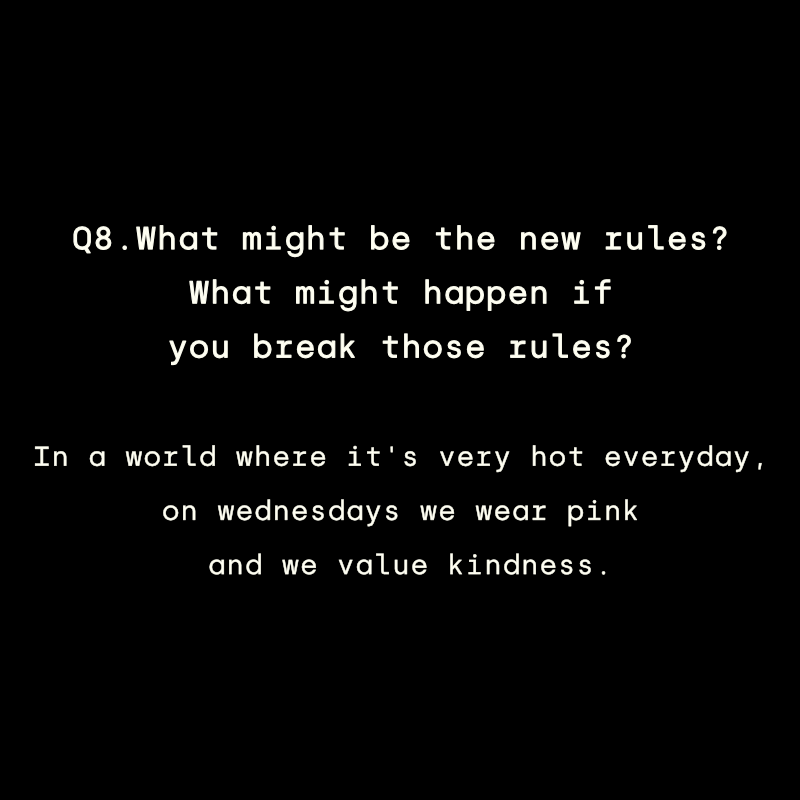
Question 8 - NatalieProject type
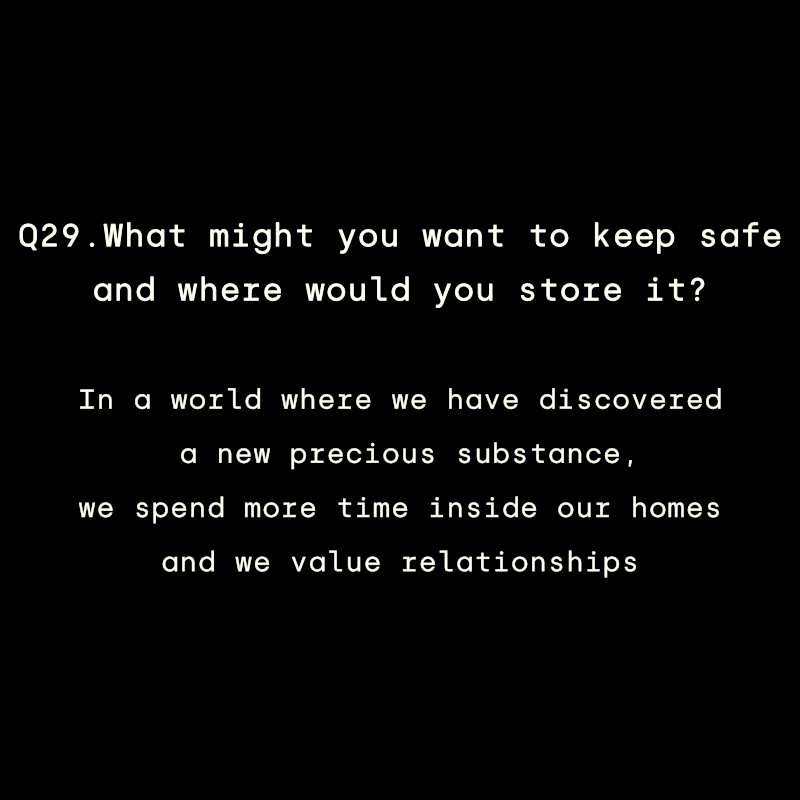
Question 29 - AnonProject type
Imagining Future Spaces is a project by Natalie Harney designed to support and inspire conversations about what alternative worlds might look and feel like.
Site Links
©Natalie Harney 2020, made with Semplice